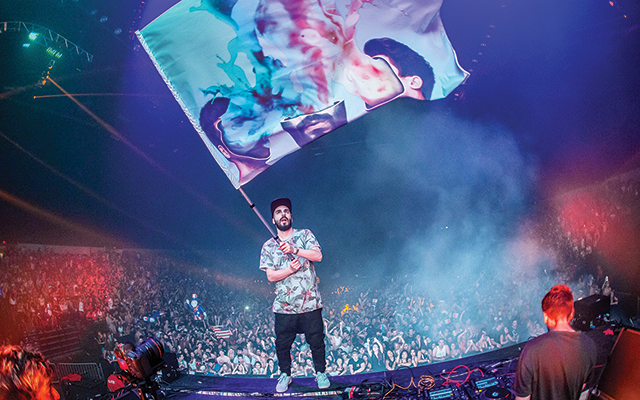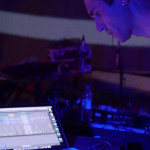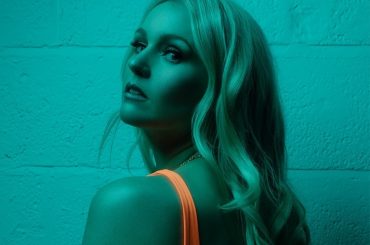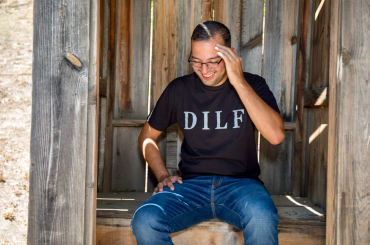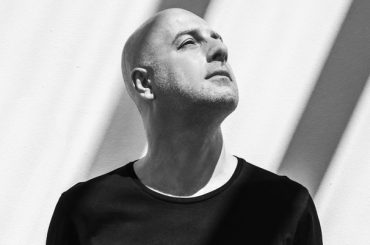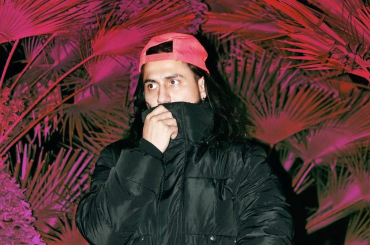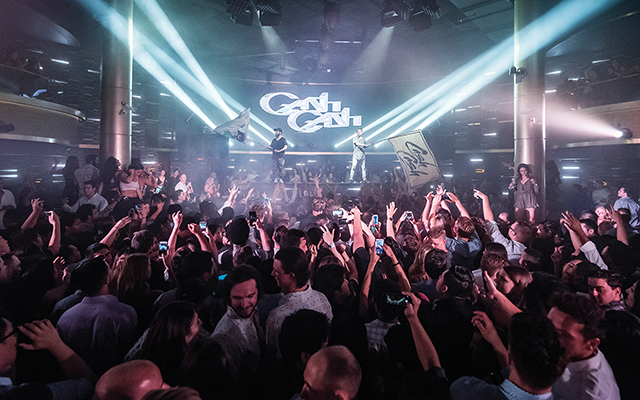
Makhlouf: Oh, 100-percent. I mean, I think that it even just gave us the confidence to be like, “No, maybe we don’t need to second-guess every single melody and every single song. Maybe we’re doing something right.” It gave us the confidence we needed internally to just be more productive. As far as outside, I think it definitely did because people were saying, “Oh, these guys are out here making competitive music,” and people liked our production. It was cool because instead of us having to go reach out to people, people were reaching out to us.
DJ Times: That had to feel good.
Makhlouf: We felt cool because the people wanted to work with us versus us picking up the phone being like, “Hey! Work with us! Work with us!” I think that was cool. Even on the remix game, Katy Perry’s team hit us up because they wanted us to do a remix. We did one for Bruno Mars, Icona Pop… It makes you feel good as a producer when people are coming after you.
DJ Times: What is your process with each vocalist? Are they bringing in lyrics and ideas and singing toplines, or is it a collaboration?
Makhlouf: It’s always a collaboration for us; we find that we get the music that way. I know a lot of DJs and producers like to focus on the music, but the thing about us is that we grew up being songwriters playing guitar, piano, drums, and all of that [and also] writing lyrics. We like to bring the artists into the studio always and start from the barebones. We’ll be jamming out on acoustic guitars and pianos—it’s really stripped down and organic, sometimes with no computers or paper.
DJ Times: Can you give an example?
Makhlouf: It was really cool working with Nelly. I’m so mathematical and jotting lyrics down, and he was like, “Put that away! Put the phone away! Put the computer away! If the lyric’s good, we’ll remember it.” It was interesting because I’m super-OCD thinking we’re going to forget the lyrics yelling, “Let me just write it down!”
DJ Times: John Rzeznik?
Makhlouf: When we were with John, it was more just us with acoustic guitars in a room going lyric for lyric. I was doing melody, he was doing melody, and we would see which one we liked—very collaborative, in the studio as well, too. We bring these artists into our home studio. Christina Perri, she came here to Jersey. We kicked it, and when we were done, we went to The Sopranos house because we knew she’s a big fan. We get really close with the artists. They become almost like family.
DJ Times: You guys come from a band-based background. What sort of influence does that have on your creative process when you’re creating songs?
Makhlouf: I think just knowing music theory, harmonies, and being more musical gives us a leg up in the studio. Even just working with the artists—we don’t need to hire someone to do vocal production. We produce vocals ourselves. We’re writing the harmonies for the features, we’re doing all the inversions; we can do all that stuff ourselves. You kind of feel more attached to the song, too, because you worked on it in so many different ways. I think even more than that, being in bands put us on the same page as a lot of the features because we come from the same world. We have a lot to relate to versus a feature getting into the studio with just an engineer. I don’t know! I just feel like we connected more with a lot of the artists because there was just so much more to talk about.
DJ Times: Tracks like “Turn” still feature live instrumentation. Is it a conscious decision to keep live elements like that in your work?
Makhlouf: One-hundred percent. We like to do little hints of stuff. We keep guitars around in the studio and pianos. If we can find the place for it, we’ll always do it. When we were doing “Lightning” with John Rzeznik, how could we not put acoustic guitar in this thing? Classic Goo Goo Dolls-style shimmery, open-tuning acoustics. That was another spot where we put [instruments] in there. There are also a lot of little flourishes we sneak in there when we could do it with a random-ass synth and are like, “Let’s make an instrument out of it.” Another thing we do is broken-down versions of a lot our singles that will be acoustic guitar or piano and strings, like we did for “Take Me Home,” “Surrender,” and “How to Love” That’s cool, too, because we’ll perform them as well, sometimes for different events. It gives us the opportunity to play again.
DJ Times: And it shows off that the music is song-based, at the end of the day.
Makhlouf: Yep! That’s another thing when we’re talking about unifying the album: Everything is pretty song-based—very focused on a lyric, a concept, or a theme. Of course, we put out club tracks, but there’s always something that’s very clean about the songwriting. That’s just our style.
DJ Times: You see a lot of duos in EDM, but trios are a bit rarer. What sort of advantages does having three people in the kitchen give you, especially in regards to touring and production?
Makhlouf: Oh my God, there’s so many. Where do I begin? The first one is that all three of us don’t have to tour because you really don’t need three people DJing. It’s great when we do have all of us because it makes things easier—there’s a lot of things we do live like live triggers with a cappellas and one-shots and mix on-the-fly, taking risks. We’ll do cool stuff, like mashing up a certain a cappella with another track—just going for it. It’s cool when you have someone else up there cueing something up or checking the key while you’re up there, but ultimately two people get the job done.
DJ Times: And the third person?
Makhlouf: We like to leave the third person home in the studio working on something because we found that when we touring all three of us—that’s how we started off—not enough original music and remixes were getting done. We have a radio show on [Sirius XM] BPM [now] and we were doing Royalty Radio [online], too—there’s just so much to do, and we felt like we were falling behind. Now we’ll keep someone in the lab, so when two of us get home, they’ll be something started.
DJ Times: Are there any challenges?
Makhlouf: There’s three cooks in the kitchen at all times because all three of us are producers, we’re all songwriters, and we all mix and master. All of us are jumping in and out of the hot seat. That being said, you also have three opinions, so we usually operate on a majority rules way. It gives us confidence. If two of us like it, chances are it’s probably better. If someone really feels strong about something, we’ll always hear the person out, and sometimes the minority will say something they feel strong about and three days later we’ll all come together and say, “Holy shit. He was right. We were both wrong. It should be like this.” We have a pretty good dynamic. We fight, but we’ve been doing this for so long that we really know how to respect one another and take it.
DJ Times: You guys are still using Cubase for production, right? What reasons do you prefer it to other DAWs?
Makhlouf: There’s so many. I just think it’s so intuitive. When we first started, we had them all up there—this is the time when Cubase, Cakewalk, Pro Tools, and Sound Forge and shit like that. We were messing with Ableton a little bit, but it wasn’t really what it is now—it was hard to do full productions in there. It was cool to make some beats. We messed with FruityLoops, but since we came from more of a producer world of actual recording instruments, vocals, and editing all that stuff, Cubase was great.
DJ Times: What was it specifically?


